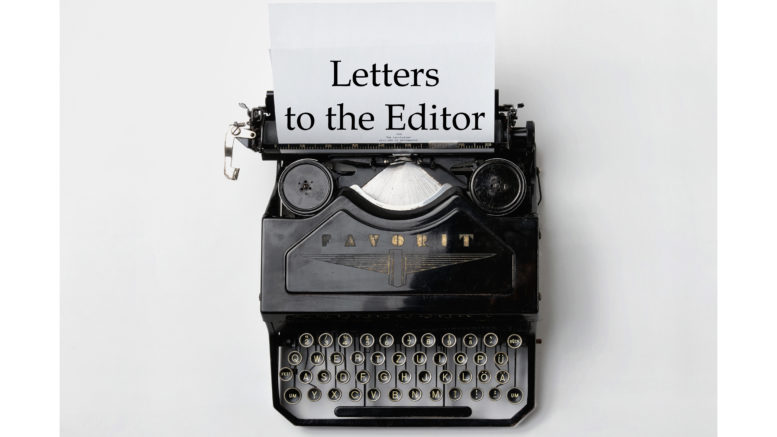Letters to the Editor do not reflect the opinions of The Reporter, its publisher or its staff. You can submit your own Letter to the Editor by email to News@ReadTheReporter.com.
Dear Editor:
March is a month in which we eagerly look forward to the beginning of Spring. It is also the month in which we celebrate Women’s History Month, an annual declared month that highlights the contributions of women to events in history and contemporary society. This special month of recognition is celebrated during March in the United States, the United Kingdom, and Australia, corresponding with International Women’s Day on March 8.
The commemoration began in 1978 as “Women’s History Week” in Sonoma County, Calif. In February, 1980, President Jimmy Carter issued a presidential proclamation declaring the week of March 8, 1980 as National Women’s History Week. The proclamation stated, “From the first settlers who came to our shores, from the first American Indian families who befriended them, men and women have worked together to build this nation. Too often the women were unsung and sometimes their contributions went unnoticed. But the achievements, leadership, courage, strength and love of the women who built America was as vital as that of the men whose names we know so well.”
In 1981, responding to the growing popularity of Women’s History Week, Sen. Orrin Hatch (R-Utah) and Rep. Barbara Mikulski (D-Md.) co-sponsored the first Join Congressional Resolution proclaiming a Women’s History Week. Congress passed their resolution as Pub.L.97-28, which authorized and requested the President to proclaim the week beginning March 7, 1982 as “Women’s History Week.” By 1986, 14 states had declared March as Women’s History Month.
Most of us are familiar with female leaders such as Susan B. Anthony, Sojourner Truth, Lucy Stone, Elizabeth Cady Stanton, Harriet Tubman, and Alice Paul. Many people are not familiar with Margaret Fuller, an early women’s rights activist; Elizabeth Ellet, a woman who catalogued and profiled more than 100 Colonial women in her writings; Lydia Taft, a woman who voted in 1756 (!) and Dicey Langston, a young Patriot who passed along vital information to her brothers in the Patriot army. Susanna Rowson was early America’s first best-selling author and Sarah Bradley Fulton was a field nurse during the Battle of Bunker Hill. We recently celebrated the 100th anniversary of the women’s right to vote, the 19th Amendment, brought to fruition after a long and difficult road for the suffragettes who won that right for us.
The names can go on and on … and should. I grew up in Noblesville, attended my first class in Kindergarten at Second Ward School (where Seminary Park now stands) in 1955. From that point throughout all my classes through the years there was little if anything taught or discussed regarding the women who contributed to the settling of our country as well as inventors, authors, scientists, and leaders. Other than Martha Washington and Pocahontas (both notable ladies, of course) little was discussed about the major roles of women in our American history. Fortunately, those roles are expanding in areas of science, medicine, government, and corporate management, although we still have a long way to go.
I hope that has changed and is changing – that our children are learning the realistic history of our country. Much of it is inspiring, some of it regrettable, and all of it important.
I encourage parents and grandparents to reach out to their daughters and granddaughters – boys also – to share the important role of women in the history of our country. I also encourage all girls who are have the interest and abilities to pursue STEM (science, technology, engineering, math) opportunities in their academic choices.
As the sixth-generation descendant of Samuel Howard, a Patriot soldier, I am thankful of course for his service to our young country but also to the strong women who supported him and brought future generations of patriots into this world. Thank you, Ladies!
Sharon McMahon
Noblesville
Regent, Horseshoe Prairie Chapter
National Society Daughters of the American Revolution

